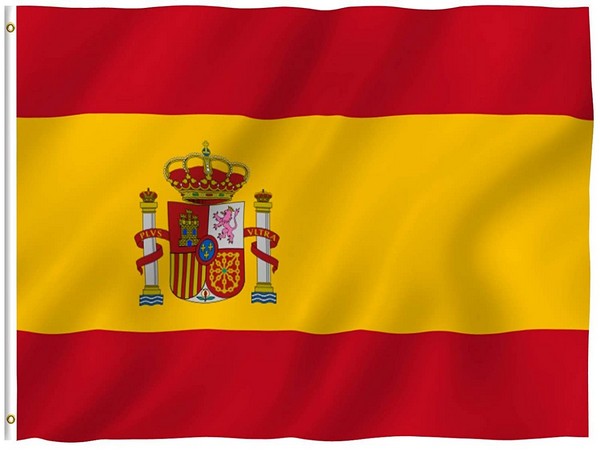FACTBOX-Spanish election: who are the candidates and their parties?

- Country:
- Spain
Spain's snap parliamentary election on July 23 is unlikely to produce a working majority for any one party, with complex pre- and post-ballot alliances holding the key to governing Spain.
Below are the groups vying for power: SPANISH SOCIALIST WORKERS' PARTY (PSOE)
* Leader: Pedro Sanchez * 2019 total votes: 6.8 million
* Lower house seats: 120 (out of 350) * Ideology: Centre-left, social democracy
Founded in 1879 by print workers and intellectuals, PSOE is Spain's oldest active party and one of two that have dominated the political landscape since Franco's rule ended with his death in 1975. It has been in government the longest since then (1982-96, 2004-11, 2018-23). In 2019, PSOE and hard-left Unidas Podemos forged Spain's first coalition government since the return to democracy.
Among its main campaign pledges, the PSOE says it would make banks extend mortgages to reduce monthly repayments, raise the minimum wage each year to 70% of the average salary, give Spaniards under 24 free transport, extend parental leave to 20 weeks and encourage more hybrid working. It would involve local residents in
choosing the location of photovoltaic and wind farms and offer them part of farms' profits, electrify the state road network to allow electric vehicles to circulate "without limitations" and extend congestion zones to all Spanish cities.
PEOPLE'S PARTY (PP) * Alberto Nunez Feijoo
* 5 million votes * 89 seats
* Centre-right, mainstream conservatism The PSOE's main rival, the PP was formed during the transition to democracy by former Franco regime officials, but after a relaunch in 1989, it veered to the centre and has headed the national government twice (1996-2004 and 2011-2018).
The PP has promised to streamline the tax system, cut taxes for lower-income earners, scrap a recently created wealth tax, introduce incentives to attract entrepreneurs to Spain, boost industry and reduce value-added tax on meat and fish. It would also
seek to reintroduce the crime of sedition that was watered down by the Sanchez government as an olive branch to Catalonia's separatist leaders, modify a
progressive transgender rights law, introduce a
fee on renewable energy projects, and
pump billions of euros into water infrastructure.
VOX * Santiago Abascal
* 3.7 million votes * 52 seats
* Far right, national populism, anti-immigration Vox split from the PP in 2013 when anti-separatists within the latter pushed to suppress Spain's semi-federal system that grants regions a certain degree of autonomy. With a mix of social ultraconservatism and economic neoliberalism, it campaigns against feminism, immigration, LGBT rights and Islam.
While the PP has said it wants to govern alone, current polls suggest it would have to form a coalition with Vox. Vox and the PP have forged coalition agreements since May local elections in cities and regions including Valencia, Extremadura and the Balearic Islands. In its manifesto, Vox says it would simplify income tax and lower rates, tamp down graft, cut public spending by closing weather agencies, ombudsmen and regional TV stations, and increase tax breaks for large families.
It also vowed to repeal
the abortion, trans and euthanasia laws, and increase parents' say in their children's school sex education. It would deport illegal migrants while cracking down on people traffickers. SUMAR ("UNITE")
* Yolanda Diaz * N/A
* N/A * Progressivism, environmentalism
Led by charismatic Labour Minister Yolanda Diaz, Sumar combines 15 left-of-PSOE parties, including the junior ruling coalition partner Podemos, which won 35 parliamentary seats in 2019. Podemos emerged from the Indignados protest movement in the aftermath of the 2008 financial crisis. It peaked in 2015 with 5.2 million votes but has since haemorrhaged support after multiple internal squabbles. Among other Sumar members is the United Left coalition that includes the Communist Party of Spain - of which Diaz is a member.
Diaz promises to gradually cut the working week to 32 hours while maintaining wages, provide Spaniards with mortgage subsidies, additional state funds for medical expenses, more urban green areas and air conditioning for schools in poorer neighbourhoods to counter Spain's sweltering heat. Sumar plans to bolster social mobility by giving all Spaniards turning 18 a "universal inheritance" of 20,000 euros ($22,000) to spend on studying or starting a business. PRO-INDEPENDENCE PARTIES
* Oriol Junqueras, Laura Borras, Arnaldo Otegi, Carles Riera, Ana Ponton * 2 million votes (combined)
* 29 seats (combined) * Full independence for the regions of Catalonia, Basque Country and Galicia
Several parties in parliament fight for their regions' secession from Spain. The left-wing ERC (Republican Left of Catalonia), centre-right Junts per Catalunya (Together for Catalonia) and anti-capitalist CUP (Popular Unity Candidacy) joined forces for the region's failed independence bid in 2017. Leftish parties EH Bildu (Basque Country Unite) and BNG (Galician Nationalist Bloc) want independence for the Basque Country and Galicia, respectively.
Most have backed the Sanchez government in parliament. OTHERS
* The centre-right and regionalist PNV (Basque Nationalist Party) has five deputies whose occasional support has helped Sanchez pass signature bills. * The centre-right and regionalist Canarian Coalition, two lawmakers.
* The centrist Regionalist Party of Cantabria, one lawmaker. * Teruel Exists wants more government attention for the depopulated northeastern province of Teruel. Its lone lawmaker was the instrumental vote to make Sanchez prime minister in January 2020.
(This story has not been edited by Devdiscourse staff and is auto-generated from a syndicated feed.)
ALSO READ
Lionel Messi's Real Estate Venture Makes Spanish Market Debut
Lionel Messi's Real Estate Venture Makes Spanish Market Debut
IAEA Expands Radiation Emergency Preparedness Training with Spanish-Language School in Buenos Aires
Vinicius Jr Cleared for Spanish Super Cup Amid Controversy
Bellingham Leads Madrid to Spanish Super Cup Final Glory










